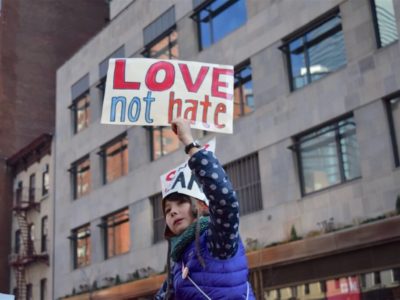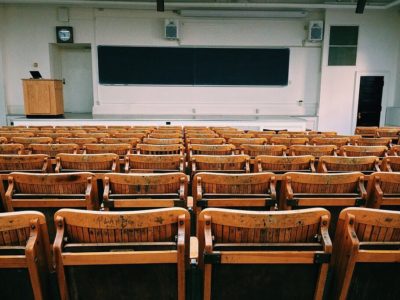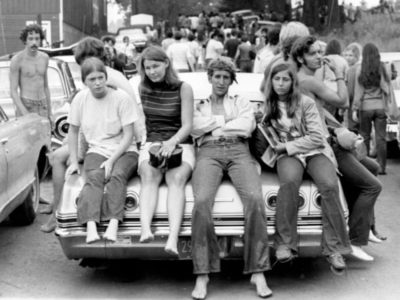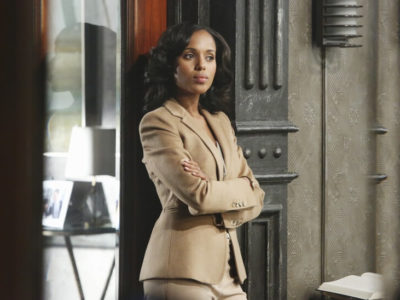So, you want to get involved in campus activism? Just your luck: hundreds of colleges across the United States have very active students in the political field. Whether the students at these colleges hold protests against injustice, reach out to marginalized groups themselves or fiercely campaign for political candidates, it all boils down to one thing: political activity. These students want to change the world for the better and they see political work as one way to make that happen.
We’ve heard it left and right for the last three years: young people don’t vote. Well, at these schools they do. The students at the colleges listed below refuse to bow to statistics. They fight for justice, qualified candidates for public office and human rights across the globe.
Find out if your school made the list:
10. Wesleyan University
About 16 miles south of Connecticut’s capital lies Wesleyan University. Boasting too many political and governmental alumni to count, notable Wesleyan grads like Charles James (former Assistant Attorney General of the United States) and James Lynch (former Director for the Bureau of Justice Statistics in the Department of Justice) have certainly given Wesleyan some political clout. Today, 87 percent of Wesleyan students report a political affiliation, and that shows in their 40 politically-oriented student organizations. In terms of on-campus events, the lives of black students over the years at Wesleyan have been displayed in exhibits throughout the campus. These installations showcase the deep history of the political drive of Wesleyan’s students.
9. Smith College
The largest member of the Seven Sisters, Smith College in Northampton, Massachusetts, acts as an incubator for modern political advocacy. With 41 diversity- and identity-focused student organizations, all female-identifying students can feel supported both by the students and by the administration. Smith’s focus on an elite, advanced woman’s education allows women to thrive. Ranked by Niche as #15 for the most liberal school, Smith hosts phenomenal speakers like Tarana Burke, the founder of the #MeToo movement, and Murray Nossel, the creator of the World Mother Storytelling Project. At Smith, 89% of students identify as politically affiliated. The eleven political organizations like the Bipartisan Coalition on campus only seek to increase this through involving all students in political discussions.
8. University of California, Santa Cruz
Ah, northern California: one of the only areas where you can find a sunny beach and snow in the same place. You can also find the University of California, Santa Cruz. Ranked the #1 most liberal school by Niche, the banana slugs of UC Santa Cruz promote human rights and social justice across the board. UCSC has seventeen political student organizations on campus. These range from the College Democrats at UCSC to animal rights groups like Banana Slugs for Animals. With 94 percent of students reporting as politically affiliated, you can surely find active students anywhere you look on campus. Of course, student political activity does not only apply to undergraduate students. As a university that issued the first feminist studies PhD’s just this past spring, it’s no wonder that UC Santa Cruz ranks among the top ten politically active schools.
7. Howard University
A list of the most politically active universities would not be complete without paying tribute to the work that historically black colleges and universities (HBCUs) do. Howard University, a HBCU in Washington, DC, holds a #7 ranking in the country for schools with criminal justice programs (Niche). Not only does the program have excellent staff and opportunities within the school itself, but the Administration of Justice program works to help those outside of the school’s walls whom the government has failed. With the gravity and importance of this kind of work, we need more students like those in Howard’s criminal justice programs.
6. Vassar College
Vassar College, like Smith and Wesleyan, comes with a time-honored history of political activism. At Vassar, people of color and LGBTQ+ folks come to the forefront of campus life. At Vassar 85 percent of student identify politically, and that shows in their ranking of #16 for most liberal schools according to Niche. Most recently, Vassar students petitioned and pushed firmly for the resignation of Linda Fairstein, the prosecutor on the 1989 Central Park Five case that left five men wrongfully imprisoned for 5-15 years, from the board of trustees of the college. “For the Linda Fairstein resignation, the whole process was amazing. With the increased publicity from the new show about the Central Park Five, someone on campus just started a change.org petition. From there everyone I know started sharing it around. We’d send it in groups and post about it. Our school’s size is 2,500 kids, and we ended up with 15,000 signatures. So we were able to signal boost it past just our school, making her resign from all the publicity,” said Vassar College sophomore Nikki Leopold. Vassar’s campus holds thousands of driven, determined, young changemakers.
5. University of California, Berkeley
A second University of California system school has made the list. The University of California, Berkeley, has made great strides in social justice and human rights. Their 155 diversity- and identity-focused clubs and organizations, along with their 70 political and activism clubs, it’s a no-brainer that UC Berkeley makes this list. Over the last few years, students at Berkeley have made the news with stories about free speech, specifically who should be allowed to speak on campus. Most recently, controversy has emerged surrounding a particular speaker from Turning Point USA, an organization that attempts to instill conservative ideology in college campuses and administrations, and his recruitment trip to Berkeley’s campus. Although this particular situation did not have an ideal result, the event does speak to the students’ willingness to keep their campus safe and progressive.
4. Grinnell College
Nestled in home of the critical Iowa Caucus, Grinnell College ranks in the top 50 schools for political science. With 28 political organizations on campus and 91 percent of students identifying as politically affiliated, Grinnell nearly tops the list for most campus political activity. Twenty Grinnell grads, like Harry Hopkins (architect of the New Deal) and Louise Noun (former president of Iowa Civil Liberties Union), have gone on to make incredible political and legal differences. This past spring semester, Grinnell students in a Queer Oral Histories class led by professor Abram Lewis worked to preserve oral histories from LGBTQ+ Iowans. With the 50th anniversary of the Stonewall Riots this past summer, nothing could be more fitting. In all, Grinnell students and faculty work hand in hand to make change in today’s complex world.
3. The George Washington University
A second Washington, DC, school, The George Washington University has also made the list. With 45 identity and diversity organizations and too many political alumni to count, GWU provides the perfect environment for a politically minded student to thrive. “Students at GW are so politically active because they can have open conversations about ideology and political stances in class and discover their activist spirit outside of the classroom. Most students have a particular social or political issue that they are passionate about, and they are in a unique position because of their proximity to the center of federal power. Students have access to internships on the Hill, NGOs and organizations on campus. Non-partisan organizations, like Democracy Matters, which advocates for campaign finance reform, are available for students from both sides of the aisle to voice their opinions on key issues,” the George Washington University executive board for Democracy Matters said. Today, much of the campus conversation focuses on international issues like Indian protests against capitalism and how that can translate to our issues domestically. GWU’s 17 political and advocacy organizations work both to unite the campus and bring awareness for issues outside of the university walls. For example, the Bipartisan Women’s Supper Club aims to unify all politically minded women, while the Internationalist Students’ Front works to combat international struggles due to imperialism.
2. Columbia University
In Morningside Heights in New York City lies Columbia University: a political powerhouse. With, again, too many political, diplomatic and legal changemakers to count, Columbia’s history of producing incredible thinkers has brought it nearly to the top of the list. 76 percent of Columbia students report a political affiliation, and Niche has placed Columbia in the top 30 most liberal schools in the country. Columbia also holds the #6 spot for political science and the #9 spot for economics, according to Niche. Like Vassar, Columbia’s students work tirelessly to make sure their administration employs only the best people, especially in the cases of criminal injustice. Most recently, black Columbia law students have sought to remove Elizabeth Lederer, the DA during the Central Park Five case, from the Columbia faculty.
1. American University
Also in the nation’s capital, American University holds one of the most widely regarded public affairs programs in the country. According to Niche, AU ranks #7 for international relations, #10 for criminal justice and #42 for political science. At least twenty American graduates have left their political mark on this world, like Dave Brat (former VA-07 Representative) and Desson Thomson (speech writer for President Barack Obama). Today, student advocates on campus work with The March for Our Lives and the Roosevelt Institute. “I’m very proud of AU for playing an active role in the March For Our Lives movement. Because we belong to the DC chapter, we get to play a very special role within the movement. All other chapters work to push legislation within their own state, but we get to work on the federal level. We’ve written and delivered letters to Senators, attended hearings in the House, lobbied and more,” American University sophomore Madison McCabe said. At American University, thousands of student advocates push to make change in today’s world, whether that’s legislation, confronting representatives at town halls or something as simple as putting up posters for the next rally.
Today’s youth (I’m looking at you, millennials and zoomers) have some of the greatest, politically compelling voices. At these ten universities, you will definitely find a place to nurture your political voice and find a way to make a change for the better.



















